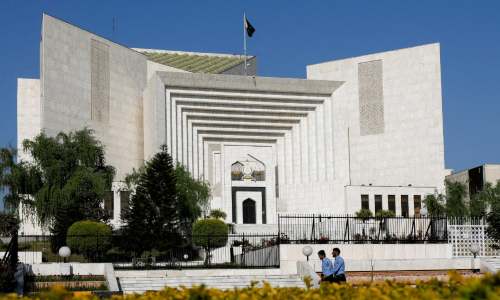ISLAMABAD: The Supreme Court of Pakistan also asked all provinces for reports of human trafficking prevention measures and for data on children without education.
During the hearing, Chief Justice Omar Atta Bandial emphasized the significance of a recent boat accident in Greece, highlighting its connection to human rights violations. He expressed concern over the exploitation of vulnerable citizens who, in search of better opportunities abroad, fall victim to scams orchestrated by human traffickers, resulting in the loss of millions of rupees.
Chief Justice Bandial further questioned whether the government possessed adequate information on child trafficking, drawing attention to the trafficking of women and children within the country. In response, the Director-General of the Ministry of Human Rights unfortunately confirmed the absence of accurate data.
The chief justice pointed out the presence of ambiguity in the 2018 law pertaining to human trafficking. The lack of a specialized enforcement agency was identified as a key challenge, as the responsibility for curbing human trafficking currently rests primarily with the police.
Additionally, the Supreme Court urged provincial governments to play an active role in combating human trafficking, emphasizing the importance of collective efforts.
During the proceedings, the court referenced a recent case involving the mistreatment of Taybah, a domestic worker. Today, Taybah, a talented ninth-grade student, resides in SOS Village after leaving her former employer’s residence. Chief Justice Bandial stressed the need to not only safeguard children but also empower them. Society at large must be educated, and it is the collective responsibility of all individuals to protect the underprivileged segments of society.
The chief justice further asserted that the government should not be solely responsible for ensuring the welfare of children, as it requires a comprehensive policy framework to prevent human trafficking, particularly involving women and children. The priority should be on providing education to children rather than subjecting them to arduous labor. Developing and implementing robust policies for the prevention of human trafficking was deemed crucial.
The hearing was adjourned for a month by a two-member bench, led by Chief Justice of Pakistan, to allow for further deliberations on the matter.
(Islamabad51-Newsdesk)














